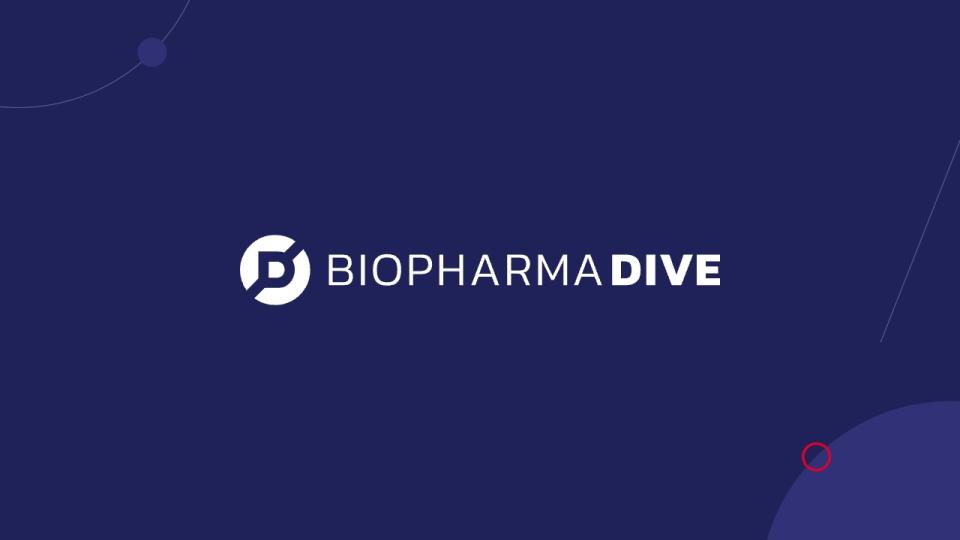AbbVie joins ADC dealmaking with $10B ImmunoGen buyout

AbbVie is expanding its investment in targeted cancer medicines, announcing Thursday a $10.1 billion deal to acquire ImmunoGen, a pioneer in the field of so-called antibody-drug conjugates, and its newly approved ovarian cancer treatment Elahere.
The transaction is this year’s third-largest biotechnology buyout and comes as AbbVie’s oncology business is sputtering. Revenues for the company’s flagship drug Imbruvica have shrunk by more than one-fifth year over year through the first nine months of 2023, as competing therapies with fewer side effects have taken market share.
Elahere gives AbbVie an on-market drug that could help boost sales as the company awaits clinical trial results and the potential approval of experimental cancer drugs in its pipeline.
Robert Michael, AbbVie’s chief operating officer, highlighted Elahere’s rapid market adoption on a Thursday call with investors. Sales, he noted, are already annualizing above $400 million, which he said would put it “on track to be one of the most successful new product launches in oncology.”
Elahere would also be the only drug in AbbVie’s portfolio approved to treat a solid tumor, rather than the blood cancers that Imbruvica and AbbVie’s other marketed medicines target.
“It has been a strategic priority for AbbVie to establish a strong foundation in solid tumors,” said AbbVie CEO Rick Gonzalez on the Thursday call.
ImmunoGen’s focus on so-called “antibody-drug conjugates,” which combine targeting antibodies with cancer-killing chemotherapy, matches AbbVie’s own research strategy. The company has emphasized development of the medicines, known as ADCs for short, and lists five in its pipeline.
Per deal terms, AbbVie will pay $31.26 per ImmunoGen share in cash, representing a 95% premium over Wednesday’s closing price. The stock was already at its highest level since 2015 before AbbVie’s offer was made public.
Founded in 1981, ImmunoGen was an early innovator in the ADC field, developing the targeting biological molecules, the tumor killing chemical payload and the molecules that link them.
Its technology helped make possible the Roche drug Kadcyla and the Sanofi drug Sarclisa. Still, its own drug development efforts didn’t bear fruit until the Food and Drug Administration last year gave conditional approval to Elahere.
The drug is now used for people with ovarian cancer whose disease has progressed despite one to three rounds of chemotherapy and whose tumors have high levels of a protein called folate receptor alpha. AbbVie estimates a majority of ovarian cancer patients have this biomarker.
A confirmatory trial of the drug recently succeeded, showing treatment reduced the risk of progression or death compared with chemotherapy in patients whose disease has worsened following at least one round of chemotherapy.
ImmunoGen is also approaching an important data readout for a second experimental drug called pivekimab sunirine in a rare bone marrow and blood cancer. That medicine is also in earlier testing for leukemia.
The biotech’s antibody-drug conjugates will join in late-stage testing of AbbVie’s most advanced ADC, telisotuzumab vedotin, which is in lung cancer trials.
The $10.1 billion deal continues pharma’s lavish spending on ADC developers. Pfizer earlier this year agreed to pay $43 billion to acquire Seagen, another pioneer in the field, while Merck & Co. signed a big collaboration deal with Daiichi Sankyo worth $5.5 billion over the first two years.
In 2020, Gilead spent $21 billion to buy Immunomedics, which had developed and launched an ADC called Trodelvy in breast cancer.
The Pfizer and AbbVie ADC acquisitions have bookended a year in which drugmakers have so far spent more than $111 billion on acquisitions, the most since 2019 according to BioPharma Dive data.
This story was originally published on BioPharma Dive. To receive daily news and insights, subscribe to our free daily BioPharma Dive newsletter.
